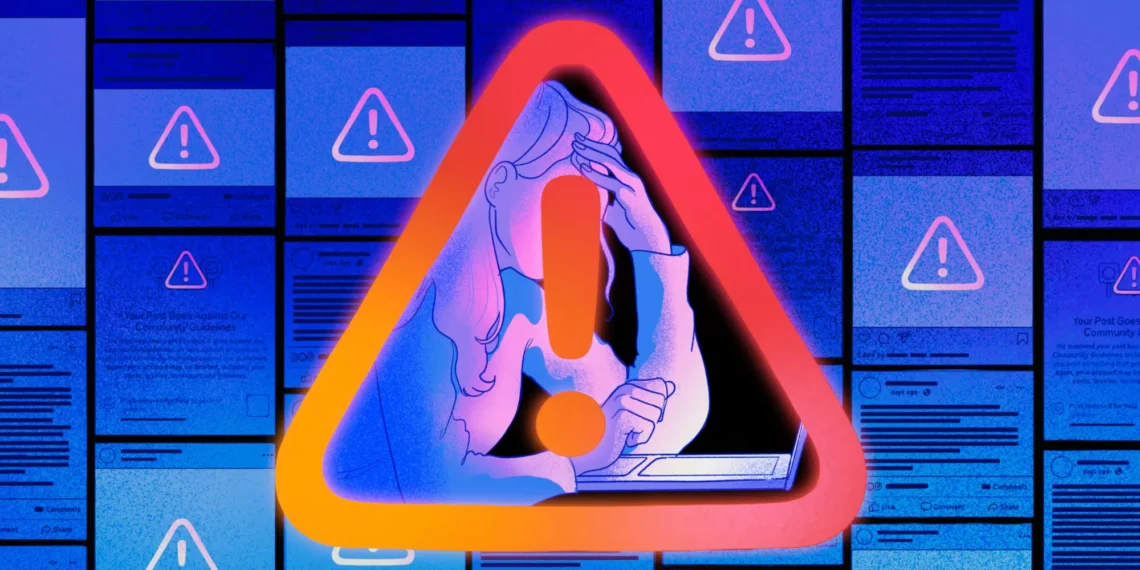Hannah Byrne, a former counter-terrorism analyst, joined Facebook with the noble intention of combating far-right extremism. However, her experience with the tech giant has left her disillusioned and convinced that Facebook cannot be trusted with such power.
In an interview with The Intercept, Byrne shared her journey from being a passionate advocate for using social media to counter extremism to becoming a vocal critic of Facebook’s practices. Her story is a cautionary tale of how a platform that was once hailed as a tool for positive change can become a breeding ground for hate and misinformation.
Byrne’s interest in using social media to combat extremism was sparked during her time working for the UK government’s counter-terrorism unit. She saw the potential of platforms like Facebook to reach and counter the narratives of extremist groups. Her belief in the power of social media only grew stronger when she joined Facebook’s Global Security Operations team in 2018.
However, as she delved deeper into her role, Byrne realized that Facebook’s approach to tackling extremism was deeply flawed. She found that the company’s focus was mainly on removing content that violated its community standards, rather than addressing the underlying issues that fuel extremism. This meant that extremist content could still thrive on the platform as long as it did not explicitly violate Facebook’s rules.
Moreover, Byrne witnessed firsthand how Facebook’s algorithms and recommendation systems were amplifying extremist content and pushing users towards more extreme and divisive groups. She also noted that the company’s lack of transparency made it difficult for her team to effectively monitor and counter extremist activity on the platform.
Her concerns were further heightened when she saw Facebook’s reluctance to take action against high-profile political figures who were using the platform to spread hate and incite violence. She recalls an incident where a post by a far-right politician was flagged by her team as violating Facebook’s rules, but the company refused to take it down, citing its newsworthiness.
This incident was a turning point for Byrne, and she realized that Facebook’s policies and actions were not in line with its claims of being a force for good. She left the company in 2020 and has since been advocating for stricter regulations and oversight of social media platforms.
Byrne’s story is a wake-up call for all of us who have blindly believed in the power of social media to bring about positive change. It is a reminder that these platforms are not neutral and can be manipulated to spread hate and division. We must hold them accountable for their actions and demand more transparency and responsibility.
Facebook, with its 2.85 billion monthly active users, has a massive influence on public discourse and has the power to shape opinions and beliefs. It has a responsibility to ensure that its platform is not being used to spread hate and extremism. However, as Byrne’s experience shows, the company’s profit-driven approach often takes precedence over its responsibility towards society.
It is time for us to recognize that Facebook and other social media platforms are not just tools for communication and connection. They have the power to shape our societies and our future. We cannot afford to let them operate without any accountability or oversight.
The recent rise of far-right extremism and hate speech on social media has shown that we cannot rely on these companies to regulate themselves. Governments must step in and introduce stricter regulations to ensure that platforms like Facebook are not being used to spread hate and incite violence.
Moreover, we, as users, also have a responsibility to be critical of the content we consume and share on these platforms. We must not be passive consumers of information and must actively question and fact-check the content we come across.
In conclusion, Hannah Byrne’s journey from being a believer in the power of social media to becoming a vocal critic of Facebook’s practices is a cautionary tale that we must not ignore. It is time for us to demand more transparency and accountability from social media companies and to recognize the impact they have on our society. We must fight for a safer and more responsible online space, and that fight begins with holding Facebook accountable.






